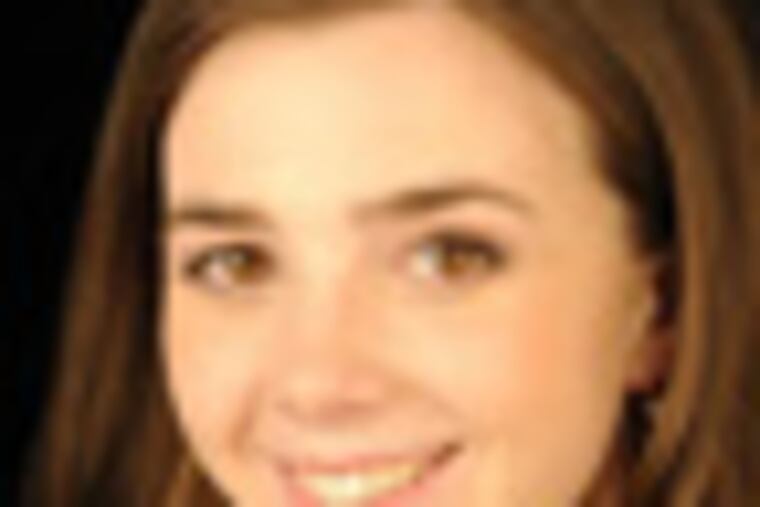Review: Balanced blending of soprano and pianist
Though deeply loved as the city's chief musical importer, the Philadelphia Chamber Music Society strikes a thoughtful balance between local and foreign. Friday night's partnership between Curtis Institute of Music student Sarah Shafer and venerable pianist Richard Goode was a particularly successful incident of this kind of blending.

Though deeply loved as the city's chief musical importer, the Philadelphia Chamber Music Society strikes a thoughtful balance between local and foreign. Friday night's partnership between Curtis Institute of Music student Sarah Shafer and venerable pianist Richard Goode was a particularly successful incident of this kind of blending.
One might also conclude that reaching across the generations was efficacious. The program of mostly Schubert and Brahms nestled piano repertoire alongside songs (they also joined in a Mahler song), and you couldn't help but sense that Goode was more vivid when he was looking over at the soprano, leaning into her sound, rooting for her in a way that gave his work more urgency than when he was playing alone.
Shafer - who spent two summers at the Marlboro Music Festival, where Goode is ensconced - seems on the brink of a real career. But her time at Curtis has hardly been a secret, and her journey from green talent to formidable personality is remarkable. The small Benjamin Franklin Hall at the American Philosophical Society may have made it easier to put across certain qualities, but there's no question those qualities are there. This is a voice of individualistic character.
The opening set was magic. In a group of five Schubert songs, Shafer was sweet and focused ("Nachtviolen"), expressive and fully capable of making the kind of sudden shifts in timbre the good singer needs to underline text ("Rastlose Liebe"). In "Suleika," full of motion, Goode lent a glossiness to running figures. Left alone, he seemed somehow less interested in the Impromptu in G Flat Major, D. 899 and Klavierstück in E Flat Minor, D. 946.
Schubert's "Daß sie hier gewesen," D. 775 ("That the East Wind blows scents") might have been the recital's most revelatory few minutes. With its opening question marks and slivers of silence, it is nearly Wagnerian. Goode and Shafer padded it with space and time suspension, moving back and forth between cold and warmth. "Beauty or love," Rückert's text weeps, "whether or not they are hidden, make it known by scents and tears, that they were here."